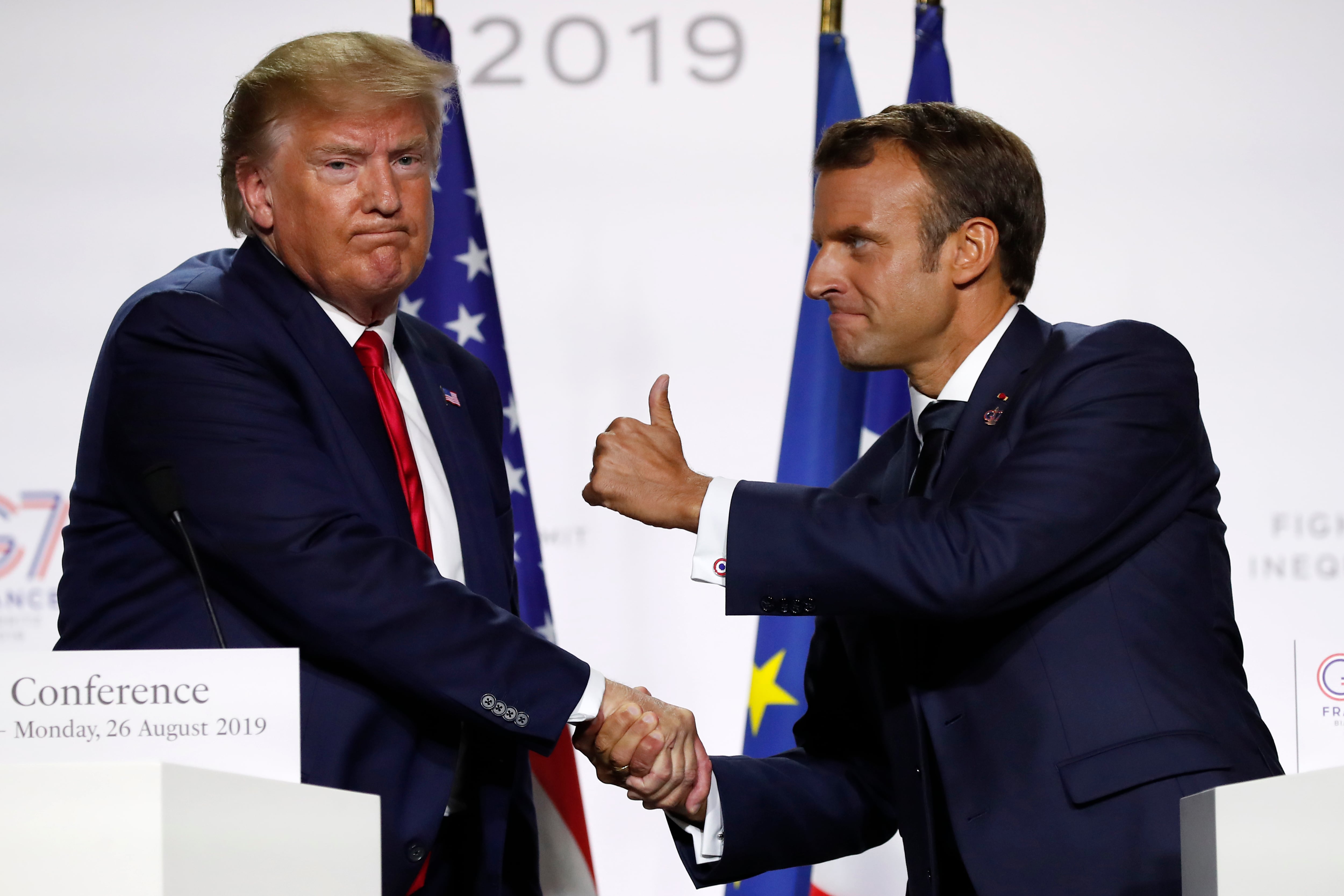Correction: An earlier version of this story misidentified Army Lt. Gen. Eric Olson as the former commander of U.S. Special Operations Command. That officer, Adm. Eric Olson, was not a signatory to the letter.
WASHINGTON ― A group of retired military officers, including a chief of staff for Colin Powell, urged Congress to pass legislation to block a declaration of war with Iran without congressional approval.
In an open letter, the former officers said President Donald Trump made it clear that “there is no broader strategy to his desire for military conflict with Iran" and warned that it was “past time for Congress to step in and stop Trump’s constitutionally unsupported march to war." The letter was organized by retired Maj. Gen. Paul Eaton of the progressive group VoteVets and its nonprofit affiliate, the Vet Voice Foundation.
“A full-scale military conflict with Iran would be a huge and costly undertaking,” the letter reads. “It’s a lesson we’ve learned before as a nation, at great cost. The wars in Iraq and Afghanistan have cost us a lot in blood and treasure. We know that war with Iran would require hundreds of thousands of American service members to deploy and could result in even larger numbers of American casualties and injuries ― alongside an unknown number of civilian deaths.”
The letter endorses provisions in the House-passed 2020 National Defense Authorization Act that would bar “unauthorized” military force in or against Iran. From Rep. Ro Khanna, first vice chair of the House Progressive Caucus, and Rep. Matt Gaetz, known for his staunch support of the president on Fox News and on Twitter, co-sponsored the language.
Because there’s no corresponding language in the Senate bill, it will be the subject of negotiations to reconcile the bills. The officers urged that it be included in the final version of the NDAA.
The letter’s signatories include retired Col. Lawrence Wilkerson, who worked for Powell; American Security Project CEO Stephen Cheney, who is a retired Marine one-star general; retired Maj. Gen. Antonio Taguba, who led the official military probe into prisoner abuse at Abu Ghraib prison in Iraq; retired Brig. Gen. Lief Hendrickson; Rear Adm. Mike Mathis; Lt. Gen. Charles Otstott; Maj. Gen. Gale Pollock; Maj. Gen. Eric Olson and Capt. Larry Seaquist.
RELATED

The former officers argued that a military confrontation with Iran would distract from the military’s focus on China and Russia, which is central to the Trump administration’s National Security Strategy.
“The idea that we would enter yet another war in the Middle East without a clear national security interest, defined mission, and withdrawal strategy is unacceptable to America's veterans and our allies across the political spectrum,” the letter reads.
The letter names John Bolton, the president’s now-dismissed national security adviser, known for his hawkish views on Iran. One Republican familiar with the disagreements between Trump and Bolton told The Associated Press that Bolton’s opposition to a possible meeting between Trump and Iranian President Hassan Rouhani was a precipitating factor in Bolton’s dismissal.
“It could happen,” Trump said Monday of a possible meeting with Rouhani. “No problem with meeting. Iran should straighten out because frankly they are in [a] very bad position right now, and they should straighten it out because they could straighten it out very easy.”
RELATED

The letter comes weeks after the U.S. military nearly launched airstrikes against Iran, following the downing of a U.S. military surveillance drone in June.
The mounting tensions are rooted in the May 2018 U.S. withdrawal from Iran’s nuclear deal with world powers. Under the deal, Tehran limited its enrichment of uranium in exchange for sanctions relief.
In response to Washington’s withdrawal, Iran initially sought diplomatic support from European partners still in the accord, but ever-increasing American sanctions choked off its sale of crude oil in the international market.
This May, the U.S. sent nuclear-capable B-52 bombers, fighter jets, an aircraft carrier and additional troops to the region over what it described as threats from Iran. Mysterious explosions struck oil tankers near the Strait of Hormuz.
This week the U.S. stepped up its anti-Iran campaign ahead of a United Nations gathering, where Iran is expected to be a major agenda item. On Tuesday, U.S. Secretary of State Mike Pompeo said Iran is trying to deceive the world by refusing to fully cooperate with the International Atomic Energy Agency.
The Associated Press contributed to this report.
Joe Gould was the senior Pentagon reporter for Defense News, covering the intersection of national security policy, politics and the defense industry. He had previously served as Congress reporter.








